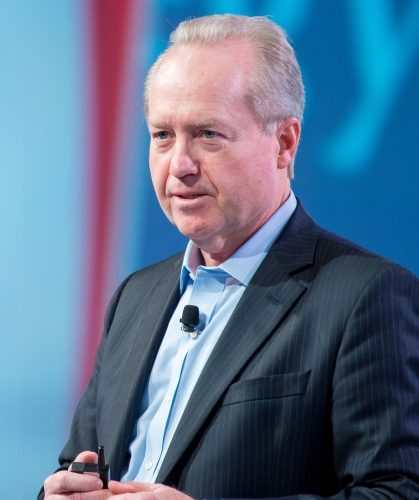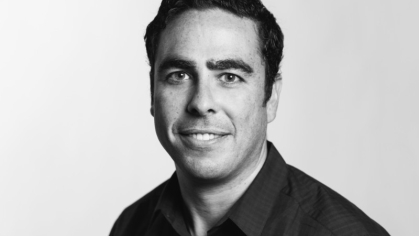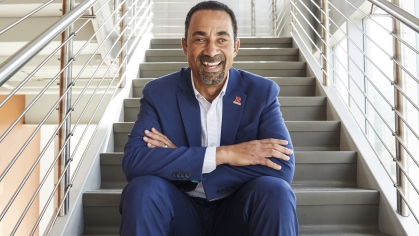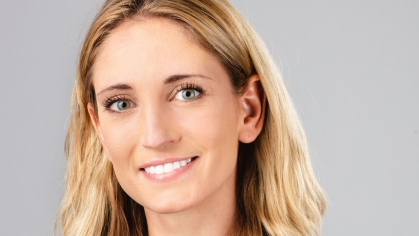
School of Engineering 2021 Medal of Excellence awardee and aerospace and defense industry leader Tom Kennedy retired in June 2021 as executive chairman of the Raytheon Technologies Board of Directors – following the one-year anniversary of the merger of Raytheon Company and United Technologies Corporation. During his 37-year career at Raytheon, he held various positions, including that of chairman and CEO. Before joining the company, he was a captain in the U.S. Air Force. After earning his B.S. in electrical engineering at Rutgers, he received his M.S. in electrical engineering from the Air Force Institute of Technology and his Ph.D. in engineering from UCLA. As Raytheon CEO, he committed millions of dollars towards educational programs and opportunities, most notably in STEM fields, for service members and their families. He and his wife have established the Thomas A. and Elaine M. Kennedy Endowed Scholarship for full-time undergraduate engineering students – with preference given to female students aspiring to careers in electrical engineering and cybersecurity–based on academic merit and financial need.
Where did you grow up?
I grew up in Trenton.
Why did you choose Rutgers?
When I was in high school, an Air Force recruiter came to my school. I took a test and received a scholarship that specified I go into an engineering discipline. I could pick any university as long as they had an ROTC program. At Rutgers, I knew I would receive credentials from a well-known and respected university.
My parents were immigrants from Ireland who did not go to college. So, there wasn’t any pressure to go to college, but I knew I had to make a living. I was a first generation student, but not the first in my family as my sister went to college before I did.
Why electrical engineering?
My father, who was an equipment operator at PSEG, talked favorably about the power engineers there, so I decided to go into electrical engineering.
What was your experience like?
I was going into engineering, which had a highly technical and tough curriculum. My high school didn’t offer advanced STEM courses, so I was at a bit of a disadvantage in my engineering classes and had to catch up with students who had more advanced math and physics classes.
My wife was in Rutgers University’s second graduating class of women. That was a whole new thing for Rutgers: Douglass was the woman’s college, and those walls didn’t come down until 1976, when the first class of Rutgers women graduated.
What do you most value about your Rutgers engineering education?
Two things changed my life: my Rutgers scholarship and my service in the Air Force.
Rutgers was a bridge for me from my blue-collar, middle-class upbringing to the next level and beyond.
It opened my eyes to what was available to folks that had a college degree in engineering in terms of careers and so on. I was raised in a blue-collar family and neighborhood, I knew working people, but not professionals. At Rutgers, I was associating with folks whose parents were engineers, doctors, and lawyers, which gave me insight into professions and career opportunities.
Did any course make a lasting impact on you?
In my senior year, an automatic controls course changed my whole outlook relative to electrical engineering. The course tied everything I’d learned in four years together and gave me insight into what I wanted to do.
What did you do after Rutgers?
I had a pilot ROTC scholarship, but when the Vietnam War ended, the Air Force reduced force, so they restricted pilot school. I first had two options: I could get out or go into civilian life for two years and then go back to pilot school. Then they offered me another option that I took, which was to stay in and get a master’s degree. The Air Force paid for both my BS and MS degrees.
What led you into management?
When I got out of the Air Force, I received a doctoral fellowship from Hughes Aircraft Company to complete my dissertation at UCLA. I then went to work as an engineer at Hughes–a highly technical, entrepreneurial group of folks. I learned a lot there and got into project management.
That was a baby step into program management. The UCLA Anderson School of Management’s yearlong executive program helped me understand more about financials and business acumen and strategy.
On a larger scope, one third of Fortune 500 company CEOs companies have engineering backgrounds. The world is changing–an engineering background is important in today’s highly technical world.
And engineering teaches you to solve problems and to define a vision, and articulate and execute a strategy to get the required results.
What are you most proud of accomplishing at Raytheon and Raytheon Technologies?
I’m especially proud of doing the megamerger with United Technologies to create Raytheon Technologies–the largest aerospace and defense company that doesn’t build aircraft. I also worked to expand the portfolio of major programs and international opportunities at Raytheon before it became Raytheon Technologies.
What did you most enjoy about your work?
I enjoyed it all. We had great people working at the company who had the energy, excitement, creativity, and ability to collaborate in ways that gave us a competitive advantage in the marketplace.
Did Rutgers SoE prepare you for your career success?
It did. It was important to me and relevant to my career and subsequent focus of my energy.
At the center is that one eye-opening automatic controls course in my senior year that pulled all the experiences I’d had together and focused me into systems theory–the area I knew I wanted to concentrate on. I ended up getting my PhD in systems control theory at UCLA.
Years later, the consulting industry came up with a system design concept–how to use inputs and outputs to stabilize and organize a business. This made me look at everything as a system and see how to leverage inputs and outputs to manage a business. I was able to apply systems controls from engineering to business.
How would you describe your leadership style?
It’s value-and team-based and strategically results oriented. It’s based on the values of trust, respect, collaboration innovation, and accountability. I would tell folks, “You wear this (Raytheon) badge. We live these values and hold each other accountable to get the results we signed up for.”
A management consultant company described the way I think of business leadership, which is to lead from the core and lead from the edge. When you lead from the edge, you define a vision and a strategy to achieve that vision. When you lead from the core, you focus on the operational, hands-on side of business to make sure strategies and actions are executed to achieve your business goals. My management style is to do both and with experience to know how much time to spend in each.
What advice would you have for a current engineering student? Or is there anything you know now that you wish you’d known as you entered Rutgers?
I’d do it all over in a heartbeat! Knowing where I’m at today, maybe I’d do it in a personally less stressful way and would have figured things out faster.
My recommendation to students is to work hard, and make sure you’re studying hard and getting the right results in your classwork. Think ahead to what kind of profession you’d like and then take the right courses to support that. Get an internship to see what you like and don’t like in terms of engineering. There are so many different types of jobs–you should try to understand what they are to find out what you like the best.
What did you do for fun as a student?
As an engineering and ROTC student, I didn’t have a lot of free time. I kept my nose to the books grinding away pretty much seven days a week during the school year and worked during the summers to make money to help out.
I started dating my wife, Elaine, at Rutgers. I’ve known her since fifth grade, when I used to throw snowballs at her house, which was around the corner from mine.
You recently retired. What are your plans?
It was a big push getting the merger done. Then we were hit with the pandemic, and I hit the big 66. I thought it was the right time to move on. I believe that today.
We have homes in Boston and Florida and like to go back and forth. I’d like to get back on my golf game. We like to travel and enjoy different locations and cultures–and we would like to visit Oman, Dubai, and potentially Tel Aviv. I’d like to go back to Australia and perhaps visit New Zealand, maybe combining this with a visit to Singapore. My wife is of Polish descent and my parents are from Ireland, so we will be spending some time visiting those countries and the rest of Europe. And, an African safari trip is on the horizon.


